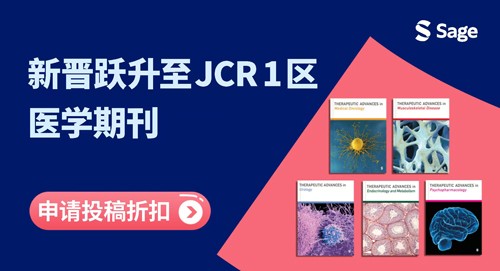-
Parasympathetic and Sympathetic Reactivity and Their Coordination as Antecedents to the Cascade of Children's Callous-Unemotional Traits and Later Psychological Adjustment. Child Dev. (IF 3.8) Pub Date : 2025-07-18 Vanessa T Cao,Patrick T Davies,Morgan J Thompson,Mona El-Sheikh
This study examined whether a mediational cascade involving children's respiratory sinus arrhythmia (RSA) reactivity to a series of cognitive and socio-evaluative stressors, their callous-unemotional (CU) traits, and psychological adjustment was moderated by their cardiac pre-ejection period (PEP) reactivity. Using a multi-method, multi-informant design, 238 mothers and their preschool children (Mage = 4
-
The N2 During Preschool: Temporal Stability and a Test of Bidirectional Effects With Maternal Emotion Characteristics in a White, European-American Sample. Child Dev. (IF 3.8) Pub Date : 2025-07-18 Anahid Akbaryan,Reese C Burkey,Peter J Ramirez,Ashley L Walker,JungWon Choi,Sejal Mistry-Patel,Jennifer L Kling,Rebecca J Brooker
Despite well-documented behavioral changes, the development of neuropsychological substrates underlying inhibitory control remains unknown, hindering understanding of this construct over time. Stability and change in N2, a neural correlate of inhibitory control, and its crosslagged, bidirectional associations with maternal emotion characteristics were examined in 121 preschoolers (59% female, predominantly
-
Multimodal Skills, but Not Motor Skills, Predict Narrative and Expressive Pragmatic Skills in Children With Typical Development and Neurodevelopmental Disorders. Child Dev. (IF 3.8) Pub Date : 2025-07-16 Júlia Florit-Pons,Mariia Pronina,Alfonso Igualada,Pilar Prieto,Courtenay Norbury
To see whether communicative-based multimodal skills (compared to non-communicative motor skills) predicted complex language skills, this study examined the predictive power of multimodal and motor skills on narrative and expressive pragmatic abilities across two groups. Participants were children with typical development (N = 88, Mage = 5.34, 48% female) and with neurodevelopmental disorders (N = 51
-
The Comprehensive Assessment of Theory of Mind (CAT): A Novel Measure of 3‐ to 8‐Year‐Old Children's Theory of Mind and an Evaluation of Mental‐State Scaling Child Dev. (IF 3.8) Pub Date : 2025-07-12 Megan J. Heise, Lindsay C. Bowman
This study describes a novel measure of children's Theory of Mind (ToM) development—called the Comprehensive Assessment of ToM (CAT)—that addresses limitations in existing ToM measures. This behavioral measure includes three–six items each about diverse desires, diverse beliefs, knowledge access, knowledge expertise, false belief, and visual perspective taking, as well as nonsocial representational
-
-
Neural Maturity of Encoding States Supports Gains to Memory Precision in Childhood Child Dev. (IF 3.8) Pub Date : 2025-06-28 Sagana Vijayarajah, Margaret L. Schlichting
Despite substantial improvements to memory precision in childhood, the neural mechanisms underlying these changes remain unclear. Here, 40 children (7–9 years; 22 females, 18 males; majority White) and 42 adults (24–35 years; 22 females, 20 males; majority White) modulated their approaches to memory formation—focusing on the specific details to encourage precision or general category to encourage imprecision
-
Automatic Extraction of Meaning From Visual Number Symbols Detected by Frequency‐Tagged EEG in Children Child Dev. (IF 3.8) Pub Date : 2025-06-28 Amandine Van Rinsveld, Christine Schiltz
Acquiring robust semantic representations of numbers is crucial for math achievement. However, the learning stage where magnitude becomes automatically elicited by number symbols (i.e., digits from 1 to 9) remains unknown due to the difficulty to measure automatic semantic processing. We used a frequency‐tagging EEG paradigm targeting automatic magnitude processing in children (N = 33, 5–10‐year‐old
-
Six‐Year‐Olds, but Not Younger Children, Consider the Probability of Being Right by Chance When Inferring Others' Knowledge Child Dev. (IF 3.8) Pub Date : 2025-06-26 Rosie Aboody, Julianna Lu, Stephanie Denison, Julian Jara‐Ettinger
When determining what others know, we intuitively consider not only whether they succeed but also their probability of success in the absence of knowledge (e.g., random guessing). Across three experiments (n = 240 North American 4–6‐year‐olds, data collected between 2020–2023) we find that 4‐year‐olds understand that tasks with a lower probability of chance success are harder. However, it is not until
-
Sibling-Focused Family Prevention With Latinx Siblings in Middle Childhood: A Randomized Clinical Trial Spanning the COVID-19 Pandemic Child Dev. (IF 3.8) Pub Date : 2025-06-14 Kimberly A. Updegraff, Adriana J. Umaña-Taylor, Annabella Gallagher, Karina M. Cahill, Daye Son, Julissa G. Duran, Daniel Jose Sanchez, Mark E. Feinberg, Damon E. Jones
This pre-registered randomized clinical trial examined the efficacy of a prevention program on parenting of siblings and sibling relationships among Latinxs. Participants were 272 sibling dyads (82.9% Mexican) with 5th graders (Mage = 10.63; SD = 0.38; 51.8% female), their younger siblings in 1st to 4th grades (Mage = 8.18; SD = 1.06; 54.8% female), and their caregivers. Families were randomized to
-
School Outness, Bias‐Based Bullying, and Bias‐Based Cyberbullying Across Europe Child Dev. (IF 3.8) Pub Date : 2025-06-12 S. Henry Sherwood, Alberto Amadori, Stephen T. Russell, Salvatore Ioverno
This study examined school outness, school climate, and country inclusivity to assess their associations with bias‐based bullying and cyberbullying among sexual and gender minority youth (SGMY) in Europe in 2020–2021 (N = 12,764; Mage = 16.07; 69% female; 43% cisgender girls; 31% bisexual). Outness was positively related to bias‐based bullying (β = 0.10, R2 = 0.21) and cyberbullying (β = 0.04, R2 =
-
Longitudinal Trajectories of Aperiodic EEG Activity in Early to Middle Childhood Child Dev. (IF 3.8) Pub Date : 2025-06-12 Dashiell D. Sacks, Viviane Valdes, Carol L. Wilkinson, April R. Levin, Charles A. Nelson, Michelle Bosquet Enlow
Aperiodic electroencephalography (EEG) activity is hypothesized to index biological mechanisms that underpin brain functioning. This longitudinal study characterized the developmental trajectories of the aperiodic slope (i.e., aperiodic exponent) and offset from infancy to 7 years of age in a US community sample (N = 391, 46.5% female, predominantly White; data collection 2013‐2023). The study further
-
Racial and Ethnic Disparities in Fathers' Food Parenting Practices and Children's Diets Child Dev. (IF 3.8) Pub Date : 2025-06-10 Yilin Wang, Brian K. Lo, In Young Park, Katherine W. Bauer, Kirsten K. Davison, Jess Haines, Rebekah Levine Coley
Racial and ethnic disparities in children's diets are prevalent. Little is known about how fathers' food parenting practices may contribute to these disparities. We examined racial and ethnic variations in food parenting practices and their associations with 2–6‐year‐old children's diets in a cross‐sectional sample of U.S. fathers surveyed in 2021–2023 (N = 1015; 16% Asian, 9% Black, 6% Hispanic, 70%
-
Need for Cognition Predicts Academic Interest Development but Not the Other Way Around: A Longitudinal Study of Secondary School Students Child Dev. (IF 3.8) Pub Date : 2025-06-04 Julia Matthes, Vsevolod Scherrer, Franzis Preckel
Need for cognition (NFC) reflects the tendency to enjoy and engage in cognitive challenges. This study examines the relations between NFC and academic interest among 922 German secondary school students (academic track) assessed four times in Grades 5–7 (initial age M = 10.63, SD = 0.55; 41% female; 90% first language German) in mathematics, German, and English. Data were collected between 2008 and
-
“Here, Let Me Do It for You”: Psychological Consequences of Receiving Direct and Indirect Help in Childhood Child Dev. (IF 3.8) Pub Date : 2025-06-03 Jellie Sierksma, Eddie Brummelman
What are the psychological consequences of receiving direct and indirect help in childhood? We conducted three preregistered experiments (N = 619, 7–9 years, 80% Dutch, 51% girls, 49% boys, mostly higher socioeconomic status) in the Netherlands (July 2020–July 2022). Children received direct help (correct answer), indirect help (hint), or no help. An internal meta‐analysis showed that children who
-
Childhood Environmental Unpredictability and Adolescent Mental Health and Behavioral Problems Child Dev. (IF 3.8) Pub Date : 2025-06-03 Kalsea J. Koss, Sydney Kronaizl, Rachel Brown, Jeanne Brooks‐Gunn
Childhood adversity takes a toll on lifelong health. However, investigations of unpredictability as a form of adversity are lacking. Environmental unpredictability across multiple developmental periods and ecological levels was examined using a multiethnic, longitudinal birth cohort (1998–2000) oversampled for unmarried parents. Data were from the Future of Families and Child Wellbeing Study (N = 4898
-
Teaching Lessons, Learning Words: Mothers' and Fathers' Sensitivity During Teaching Uniquely Mediates Associations Between Early Familial Socioeconomic Risk and Preschoolers' Receptive Language Development Child Dev. (IF 3.8) Pub Date : 2025-06-02 Lindsay Taraban, Daniel S. Shaw, Kristin B. Nordahl, Ane Nærde
Observed parental sensitivity during a parent–child teaching task and free‐play task was tested as mediators of the association between family socioeconomic risk and child receptive language at 48 months, consistent with family investment theory. Parents (n = 881 mothers; 624 fathers, data collected between 2006‐2008) and their 5‐month‐old children (52% male) were recruited from public health clinics
-
Children Strategically Decide What to Practice Child Dev. (IF 3.8) Pub Date : 2025-05-31 Daniil Serko, Julia Leonard, Azzurra Ruggeri
Adjusting practice to different goals and characteristics is key to learning, but its development remains unclear. Across 2 preregistered experiments, 190 4‐to‐8‐year‐olds (106 female; mostly White; data collection: December 2021–September 2022) and 31 adults played an easy and a difficult game, then chose one to practice before a test on either the easy, difficult, or a randomly chosen game. All children
-
The Emotional Vaccine: Maternal Caregiving in Infancy Shaped Future Preschoolers' Internalizing Symptoms During the COVID‐19 Pandemic Child Dev. (IF 3.8) Pub Date : 2025-05-30 Yael Schlesinger, Yael Paz, Sofie Rousseau, Naama Atzaba‐Poria, Tahl I. Frenkel
The present study assessed both concurrent and early influences of the maternal caregiving environment to examine unique contributions of each to variation in children's emotional responses to COVID‐19 pandemic. Preschoolers (3–5 years; M = 4.12, SD = 0.49) previously assessed in infancy, several years prior to pandemic outbreak, were re‐assessed during pandemic‐related nationwide lockdown (N = 200;
-
Infants Assume Questions Serve an Information‐Seeking Function, Link Them to Interrogative Sentences and Differentiate Them From Assertions Child Dev. (IF 3.8) Pub Date : 2025-05-30 Cyann Bernard, Adeline Depierreux, Viviane Huet, Olivier Mascaro
Eye‐tracking studies tested the understanding of two types of speech acts (questions and assertions) in 14‐, 18‐, and 30‐month‐olds (N = 280; 149 females; ethnicity data collection forbidden, testing in 2021–2024). Experiments involved objects either hidden or visible for a speaker. By 14 months, when the speaker asked questions, infants focused on hidden objects (rs > 0.31). Infants linked novel labels
-
Developments in Children's Evaluations of and Reasoning About Disability‐Related Accommodations Child Dev. (IF 3.8) Pub Date : 2025-05-29 Nicolette Granata, Chyna Bacchus, Melanie Leguizamon, Jonathan D. Lane
Children with disabilities often receive accommodations, but teachers rarely explain them to typically‐developing (TD) classmates. How do TD students reason about these accommodations and evaluate their fairness? Five‐, seven‐, and nine‐year‐olds from the United States (N = 122; 50% female; 87.7% white; data collected April 2022 ‐ September 2023) heard stories where a child character with a cognitive
-
Ecological Momentary Assessment Reveals Causal Effects of Music Enrichment on Infant Mood Child Dev. (IF 3.8) Pub Date : 2025-05-28 Eun Cho, Lidya Yurdum, Ekanem Ebinne, Courtney B. Hilton, Estelle Lai, Mila Bertolo, Pip Brown, Brooke Milosh, Haran Sened, Diana I. Tamir, Samuel A. Mehr
Music appears universally in human infancy with self‐evident effects: as many parents know intuitively, infants love to be sung to. The long‐term effects of parental singing remain unclear, however. In an offset‐design exploratory 10‐week randomized trial conducted in 2023 (110 families of young infants, Mage = 3.67 months, 53% female, 73% White), the study manipulated the frequency of infant‐directed
-
Gesture Production Selectively Predicts Language Outcomes in Spanish‐English Bilingual Children Child Dev. (IF 3.8) Pub Date : 2025-05-27 Perla B. Gámez, Ö. Ece Demir‐Lira, Paola Pinzón‐Henao
This longitudinal study (data collected from 2019 to 2023) examines the relation between Spanish‐English bilingual Latino toddlers' (n=46; F=22; M=24) early gesture production (Mage=18.67 months; SDage=1.02) and later language skills (Mage=36.87 months; SDage=0.81). Video recordings at child‐age 18‐months yielded counts of children's speech and gesture production; the latter included gesture words
-
EEG Theta Power in Bangladeshi Children: Associations With Early Experiences and Cognitive Outcomes Child Dev. (IF 3.8) Pub Date : 2025-05-27 Eileen F. Sullivan, Ran Wei, Shahria Kakon, Talat Shama, Fahmida Tofail, William A. Petri, Rashidul Haque, Charles A. Nelson
Identifying the neural processes that underlie the association between children's early adverse experiences and cognitive development could inform more effective intervention strategies. The goal of the current study (data collected 2015–2021) was to examine relations among early experiences at 6 months, electroencephalography (EEG) theta power at 6 months and 2 years, and cognitive outcomes at 5 years
-
Combined Language and Code Emergent Literacy Intervention for At‐Risk Preschool Children: A Systematic Meta‐Analytic Review Child Dev. (IF 3.8) Pub Date : 2025-05-03 Jennie Cusiter, Kate Short, Annabel Webb, Natalie Munro
This meta‐analytic review explored the characteristics and effectiveness of combined language (e.g., vocabulary) and code (e.g., phonological awareness) interventions, including synergistic intervention effects for at‐risk preschoolers. Data from 29 randomized controlled trials, published before March 2023, reporting on 43 interventions, including 9333 children (4–6 years; 55% male, 45% African American
-
Early Vocabulary Acquisition: From Birth Order Effect to Child‐to‐Caregiver Ratio Child Dev. (IF 3.8) Pub Date : 2025-05-03 Audun Rosslund, Natalia Kartushina, Nora Serres, Julien Mayor
Growing up with multiple siblings might negatively affect language development. This study examined the associations between birth order, sibling characteristics and parent‐reported vocabulary size in 6163 Norwegian 8‐ to 36‐month‐old children (51.4% female). Results confirmed that birth order was negatively associated with vocabulary, yet exhibited a U‐shaped pattern. A data‐driven measure of “child‐to‐caregiver
-
Issue Information Child Dev. (IF 3.8) Pub Date : 2025-04-25
Click on the article title to read more.
-
Moving Beyond Point in Time Estimates: Using Growth Models to Understand When PreK Convergence Happens, How, and for Which Skills Child Dev. (IF 3.8) Pub Date : 2025-04-25 Meghan McCormick, Emily Hanno, Christina Weiland, Tiffany Wu, Mirjana Pralica, JoAnn Hsueh, Alexandra Giles, Catherine Snow, Jason Sachs
This study examines associations between enrollment in high‐quality PreK and growth in children's (N = 422; Mage = 5.63 years; 47% female; 15% Asian, 19% Black, 30% White, 31% Hispanic; 5% other or mixed race) academic, executive functioning, and social–emotional skills across kindergarten (2017–2018) and first grade (2018–2019). Associations between PreK enrollment and language and math skills were
-
Adolescents' Race Consciousness Strengthens Broader Awareness of Societal Inequality Child Dev. (IF 3.8) Pub Date : 2025-04-24 Elena Maker Castro, Laura Wray‐Lake, Jason A. Plummer
This study examined bidirectional changes in adolescents' awareness of inequality and race consciousness between 2017 and 2018 in the USA and whether discriminatory experiences informed developmental pathways. The sample (N = 2645; Mage = 14.6, SD = 2.14; 56.5% female; > 0.01% transgender and gender diverse) was White (35.8%), Latinx (31.4%), multiple racial and ethnic groups (13.5%), Black (7.3%)
-
Predictors of Young Adults' Primal World Beliefs in Eight Countries Child Dev. (IF 3.8) Pub Date : 2025-04-23 Jennifer E. Lansford, Laura Gorla, W. Andrew Rothenberg, Marc H. Bornstein, Lei Chang, Jeremy D. W. Clifton, Kirby Deater‐Deckard, Laura Di Giunta, Kenneth A. Dodge, Sevtap Gurdal, Daranee Junla, Paul Oburu, Concetta Pastorelli, Ann T. Skinner, Emma Sorbring, Laurence Steinberg, Liliana Maria Uribe Tirado, Saengduean Yotanyamaneewong, Liane Peña Alampay, Suha M. Al‐Hassan, Dario Bacchini
Primal world beliefs (“primals”) capture understanding of general characteristics of the world, such as whether the world is Good and Enticing. Children (N = 1215, 50% girls), mothers, and fathers from Colombia, Italy, Jordan, Kenya, Philippines, Sweden, Thailand, and United States reported neighborhood danger, socioeconomic status, parental warmth, harsh parenting, psychological control, and autonomy
-
Theoretical and Quantitative Disconnect When Modeling Adverse Childhood Experiences Using a Common Factor Framework: An Argument for Causal Indicator Models in Stressor Research Child Dev. (IF 3.8) Pub Date : 2025-04-23 Daniel P. Moriarity, George M. Slavich
Adverse childhood experiences (ACEs) are highly impactful stressors that increase individuals' risk for a plethora of negative developmental and health outcomes. Furthermore, minoritized groups and under‐resourced individuals are at higher risk for ACEs, positioning these stressors as possible mechanisms driving health disparities. Given this fact, a strong methodological foundation is necessary to
-
Children's Developing Understanding of the Value of Disagreement for Learning Child Dev. (IF 3.8) Pub Date : 2025-04-12 Ashley Ransom, Kirsten H. Blakey, Samuel Ronfard
Do children and adults recognize the value of disagreement for learning? Across two preregistered studies (data collected 2023), 4‐ to 8‐year‐old children (N = 200, 101 females, mixed ethnicities) and adults (N = 200, 99 females, mixed ethnicities) were asked whether a protagonist would learn more by talking to someone who agrees or disagrees with them about different beliefs. Across studies, participants
-
Moral Judgment and Cheating: Evidence of A Knowledge–Behavior Link in Early Childhood Child Dev. (IF 3.8) Pub Date : 2025-04-11 Li Zhao, Weihao Yan, Junjie Peng, Paul L. Harris
This research with two studies examined whether young children's moral judgments of honesty and dishonesty predict their actual cheating behavior. Participants were 200 children aged 3–6 years (2021–2022. Study 1: N = 80, Mage = 4.96, 40 girls; Study 2: N = 120, Mage = 4.98, 60 girls; all middle‐class Han Chinese). Children completed a temptation resistance paradigm assessing honest or cheating behaviors
-
Is Uncertainty in the Eyes or in Parents' Talk? Linking an Eye‐Tracking Measure of Toddlers' Core Metacognition to Parental Metacognitive Talk Child Dev. (IF 3.8) Pub Date : 2025-04-09 Marion Gardier, Marie Geurten
Recent studies have established that even preverbal infants can monitor and regulate their mental states, raising the question of the variables involved in this early metacognitive development. Here, the metacognition of fifty‐five 18‐month‐old (27 females; mostly White; data collection: 2023) was assessed using an eye‐tracking paradigm designed to capture children's ability to seek information (i
-
Childcare Center Attendance During the Covid‐19 Pandemic: Boosting Cognitive and Language Development Child Dev. (IF 3.8) Pub Date : 2025-04-07 Marigen Narea, Pamela Soto‐Ramírez, Alejandra Abufhele
The Covid‐19 pandemic underscored the significance of early childhood education and care (ECEC) for children's development. We investigated the impact of attendance at ECEC programs following a closure period due to the pandemic. We used linear regression with a lagged dependent variable to examine assessments of children's cognitive and receptive language based on a sample of Chilean children (N =
-
The Factor Structure of Parents' Math‐Related Talk and Its Relation to Children's Early Academic Skills Child Dev. (IF 3.8) Pub Date : 2025-04-05 Yemimah A. King, Sarah H. Eason, Robert J. Duncan, Arielle Borovsky, David J. Purpura
This study, involving 120 children (Mage = 4.25; SD = 0.83; 53% Female, 49% White, 23% multiracial, 16% Black, 9% Asian American, and 3% Latine) and their parents, examined parent talk constructs and their relation to children's early academic skills in 2021. Parents' talk was best represented as a three‐factor structure (general, number, and mathematical language), suggesting that mathematical language
-
Children's Evaluations of Empathizers Child Dev. (IF 3.8) Pub Date : 2025-04-04 Alexis S. Smith‐Flores, Gabriel J. Bonamy, Lindsey J. Powell
Children's evaluations of empathizers were examined using vignette‐based tasks (N = 159 4‐ to 7‐year‐old U.S. children, 82 girls, 52% White) between March 2023 and March 2024. Children typically evaluated empathizers positively compared to less empathic others. They rated empathic responses as more appropriate, selected empathizers as nicer, and inferred more positive relationships between empathizers
-
Evidence for a Low Number Prior in Children's Intuitive Number Sense Child Dev. (IF 3.8) Pub Date : 2025-04-04 Miranda N. Long, Darko Odic
Children rely on their Approximate Number System to intuitively perceive number. Such adaptations often exhibit sensitivity to real‐world statistics. This study investigates a potential manifestation of the ANS's sensitivity to real‐world statistics: a negative power‐law distribution of objects in natural scenes should be reflected in children's expectations about number, or in more Bayesian terms
-
Stability of Aging‐ and Cognition‐Related Methylation Profile Scores Across Two Waves in Children and Adolescents Child Dev. (IF 3.8) Pub Date : 2025-04-04 Abby J. deSteiguer, Laurel Raffington, Aditi Sabhlok, Peter Tanksley, Elliot M. Tucker‐Drob, K. Paige Harden
DNA‐methylation profile scores (MPSs) index biology relevant for lifelong physical and cognitive health, but information on their longitudinal stability in childhood is lacking. Using two waves of data collected from 2014 to 2022 (Mlag between waves = 2.41 years) from N = 407 participants (Mage = 12.05 years, 51% female, 60% White), test–retest correlations were estimated for four salivary MPSs related
-
Children Predict Improvement on Novel Skill Learning Tasks Child Dev. (IF 3.8) Pub Date : 2025-04-04 Xiuyuan Zhang, Brandon A. Carrillo, Ariana Christakis, Julia A. Leonard
Learning takes time: Performance usually starts poorly and improves with practice. Do children intuit this basic phenomenon of skill learning? In preregistered Experiment 1 (n = 125; 54% female; 48% White; collected 2022–2023), US 7‐ to 8‐year‐old children predicted improved performance, 5‐ to 6‐year‐old children predicted flat performance, and 4‐year‐old children predicted near‐instant success followed
-
Developing Conflict Monitoring Abilities Predict Children's Revision of an Intuitive Theory Child Dev. (IF 3.8) Pub Date : 2025-04-02 Elfriede R. Holstein, Maria Theobald, Leonie S. Weindorf, Garvin Brod
We investigated the role of children's conflict monitoring skills in revising an intuitive scientific theory. Children aged 5 to 9 (N = 177; 53% girls, data collected in Germany from 2019‐2023) completed computer‐based tasks on water displacement, a concept prone to misconceptions. Children predicted which of two objects would displace more water before receiving feedback. With increasing age, children
-
How a Preschool Intervention Affected High School Outcomes: Longitudinal Pathways in a Randomized‐Controlled Trial Child Dev. (IF 3.8) Pub Date : 2025-04-02 Karen L. Bierman, Brenda S. Heinrichs, Janet A. Welsh, Damon E. Jones, D. Max Crowley
This study examined the impact of the Head Start Research‐based, Developmentally Informed (REDI) preschool intervention on high school outcomes and explored longitudinal mediation. 356 children (58% White, 25% Black, 17% Latinx; 54% female, 46% male; Mage = 4.49 years) were recruited from Head Start classrooms which were randomized to intervention (N = 192) or “usual practice” (N = 164). REDI effects
-
A Cross‐Cultural Analysis of Infants' Spatial Attention on the Infant Orienting With Attention (IOWA) Task Child Dev. (IF 3.8) Pub Date : 2025-03-12 Michaela C. DeBolt, Bess L. Caswell, Matthews George, Kenneth Maleta, Elizabeth L. Prado, Shannon Ross‐Sheehy, Christine P. Stewart, Lisa M. Oakes
Research with Western samples has uncovered the rapid development of infants' visual attention. This study evaluated spatial attention in 6‐ to 9‐month‐old infants living in rural Malawi (N = 511; = 255, = 427) or suburban California, United States (N = 57, = 29, = 37) in 2018–2019. Using the Infant Orienting With Attention (IOWA) task, results showed that infants were faster and more accurate to fixate
-
Who Leads and Who Follows? The Pathways to Joint Attention During Free‐Flowing Interactions Change Over Developmental Time Child Dev. (IF 3.8) Pub Date : 2025-02-18 M. Perapoch Amadó, E. A. M. Phillips, G. Esposito, E. Greenwood, J. Ives, P. Labendzki, K. Lancaster, T. J. Northrop, N. K. Viswanathan, M. Gök, M. J. Peñaherrera, E. J. H. Jones, S. V. Wass
Joint attention (JA) has been found to correlate with many developmental outcomes. However, little is known about how naturalistic JA is established and develops during early infancy. In this study, free‐flowing tabletop toy play between infants at 5 and 15 months and their mothers (N = 48 dyads; 65% white) was observed to (1) examine changes in JA, (2) investigate whether infants become better leaders
-
Exploring the Out‐Group Homogeneity Effect Among Arab Children in Israel: The Roles of Religion, Contact, and Group Identification Child Dev. (IF 3.8) Pub Date : 2025-02-17 Francine Essa, Hannes Rakoczy, Gil Diesendruck
The out‐group homogeneity effect has been found to contribute to adults' inter‐group biases. Three studies examined whether 5‐ and 8‐year‐old Arab (i.e., minority) children in Israel also manifest this effect (March 2017–January 2020). Arab children from different religious affiliations and social environments (N = 272, 54% females) were asked to choose either a homogeneous or a heterogeneous sample
-
The Role of Controllability and Foreseeability in Children's Counterfactual Emotions Child Dev. (IF 3.8) Pub Date : 2025-02-14 Alicia K. Jones, Shalini Gautam, Jonathan Redshaw
Counterfactual emotions such as regret may aid future decision‐making by encouraging people to focus on controllable features of personal past events. However, it remains unclear when children begin to preferentially focus on controllable features of such events. Across two studies, Australian 4–9‐year‐olds (N = 336, 168 females; data collected during 2021–2022) completed tasks that led to positive
-
Impacts of the Preschool Safe Program on Marginalized Girls in Northern Nigeria Child Dev. (IF 3.8) Pub Date : 2025-02-14 Sharon Wolf, Johanna Bernard, Chika R. Ezeugwu, Lubabatu Ahmad, Khadijah Bello Gurin
Quality early childhood education (ECE) can improve children's learning and development in low‐ and middle‐income countries, but little evidence exists of programs targeting marginalized girls in vulnerable rural communities. This study used a matched‐pair mixed‐methods community‐randomized trial to evaluate a preschool program for marginalized girls (N = 466, Mage = 5‐years; W1 = 2022; W2 = 2023)
-
Reasoning to Justify Eating Animals Varies With Age Child Dev. (IF 3.8) Pub Date : 2025-02-01 Luke McGuire, Tina Bagus, Alexander G. Carter, Emma Fry, Nadira S. Faber
The present study examined the justifications used by children, adolescents, and adults to justify eating animals. Children (n = 100, Mage = 9.82, SD = 0.77, female n = 49) as compared to adolescents (n = 76, Mage = 14.0, SD = 1.62, female n = 36) and adults (n = 113, Mage = 44.1, SD = 14.4, female n = 54) were more ambivalent or opposed to eating animals, and they showed a distinct reasoning pattern
-
Trajectories of the Late Positive Potential Across Childhood and Adolescence: A 9‐Year Longitudinal Study Child Dev. (IF 3.8) Pub Date : 2025-02-01 Alison E. Calentino, Nathan M. Hager, Elise M. Adams, Aline K. Szenczy, Lindsay Dickey, Autumn Kujawa, Greg Hajcak, Brady D. Nelson, Daniel N. Klein
The late positive potential (LPP), an event‐related potential reflecting affective processing, may exhibit developmental shifts in magnitude and scalp location. In the present longitudinal study, 501 youth (47.3% female; 89.4% White; 12.0% Hispanic) completed the emotion interrupt task to elicit the LPP to neutral, positive, and negative images at approximately 9, 12, 15, and 18 years old (data collected
-
Learning (Not) to Know: Examining How White Ignorance Manifests and Functions in White Adolescents' Racial Identity Narratives Child Dev. (IF 3.8) Pub Date : 2025-01-23 Brandon D. Dull, Leoandra Onnie Rogers, Jade Ross
In critical approaches to the study of whiteness, white ignorance refers to systematic and intentional ways of (not) knowing that function to perpetuate racism. The current critical qualitative analysis examines how white ignorance surfaces in the racial identity narratives of white adolescents (N = 69, Mage = 15.91, SD = 0.49, data collected 2017–2019). Using semi‐structured interview data, we identified
-
Promoting Identity Development, Multicultural Attitudes, and Civic Engagement Through Ethnic Studies: Evidence From a Natural Experiment Child Dev. (IF 3.8) Pub Date : 2025-01-20 Sarah Gillespie, Mirinda M. Morency, Elizabeth Fajemirokun, Gail M. Ferguson
This study used a natural experiment design to examine the impact of ethnic studies courses on students' ethnic‐racial identity (ERI) development, multicultural attitudes, and civic engagement during the 2021–2022 school year in Minneapolis, MN (N = 535; 33.5% White, 29.5% Black, 21.1% Latine, 10.7% multi‐racial; 44.7% female, 7.1% non‐binary). Compared to students who were quasi‐randomly assigned
-
The parent–child relationship and child shame and guilt: A meta‐analytic systematic review Child Dev. (IF 3.8) Pub Date : 2025-01-17 Rahel L. van Eickels, Magdalena Siegel, Alice J. Juhasz, Martina Zemp
Empirical findings on the associations of positive and dysfunctional parent–child relationship (PPCR/DPCR) characteristics with child shame, adaptive guilt, and maladaptive guilt were synthesized in six meta‐analyses. The 65 included samples yielded 633 effect sizes (Ntotal = 19,144; Mage = 15.24 years; 59.0% female; 67.7% U.S. samples, n = 12,036 with 65% White, 12.3% Hispanic and Latinx, 10.8% Black
-
Connecting Language Abilities and Social Competence in Children: A Meta‐Analytic Review Child Dev. (IF 3.8) Pub Date : 2025-01-17 Karolina Wieczorek, Megan DeGroot, Heather Ganshorn, Susan A. Graham
Research examining relations between language skills and social competence has yielded mixed findings. Three meta‐analyses investigated links between language skills (overall, receptive, and expressive) and social competence in 2‐ to 12‐year‐old children. Data from 130 studies representing 62,120 children (M age at language assessment = 4.70 years; 52% male), predominantly from North America and Europe
-
Young Children's and Caregivers' Evaluations About Household Helping: Balancing the Interests of Helper and Recipient Child Dev. (IF 3.8) Pub Date : 2025-01-11 Marie Grace Martinez‐Mora, Audun Dahl
Young children's helping can benefit both recipient and helper. This study examined how children and caregivers incorporate helper and recipient interests in evaluations of household helping. Data were collected throughout 2022. US children 4–6 years (N = 87; 47 girls, 40 boys; 71% European American, 23% Asian American, 14% Latinx, 3% Black, 2% Native American) and their caregivers were evaluated whether
-
Multimodal Measurement of Pubertal Development: Stage, Timing, Tempo, and Hormones Child Dev. (IF 3.8) Pub Date : 2025-01-08 Adam Omary, Mark Curtis, Theresa W. Cheng, Patrick Mair, Elizabeth A. Shirtcliff, Deanna M. Barch, Leah H. Somerville
Using data from the Human Connectome Project in Development (N = 1304; ages 5–21 years; 50% male; 59% White, 17% Hispanic, 13% Black, 9% Asian), multiple measures (self‐report, salivary hormones) and research designs (longitudinal, cross‐sectional) were used to characterize age‐related changes and sex differences in pubertal development. Both sexes exhibit a sigmoid trajectory of pubertal development;
-
Guidance and Considerations When Performing Data‐Validity Checks Child Dev. (IF 3.8) Pub Date : 2025-01-07 Joseph R. Cimpian, Jennifer D. Timmer, Taek H. Kim
This response to a Commentary by Delgado‐Ron, Jeyabalan, Watt, and Salway (2024) on Cimpian, Timmer, and Kim's (2023) paper discusses and clarifies some key issues in applying the new data‐validity sensitivity analysis proposed by Cimpian et al. (2023). The differences in the applications of the method by Delgado‐Ron et al. (2024) and Cimpian et al. (2023) present an opportunity to recognize the possibilities
-
Issue Information Child Dev. (IF 3.8) Pub Date : 2025-01-02
Click on the article title to read more.
-
Doing more than expected: The role of the recipient's neediness in children's perception of their relative prosociality Child Dev. (IF 3.8) Pub Date : 2025-01-02 Bar Levy‐Friedman, Tehila Kogut
This study examined children's self‐assessment of their prosociality, relative to average peers, in situations where the recipient is described as “needy” versus “not needy” (at a school of average socioeconomic level in south Israel; N = 158; aged 6–12 years; 51% males, December–May 2021). The results show that older children exhibited the better‐than‐average (BTA) effect by seeing themselves as more
-
Pointing out learning opportunities reduces overparenting Child Dev. (IF 3.8) Pub Date : 2024-11-21 Reut Shachnai, Mika Asaba, Lingyan Hu, Julia A. Leonard
Overparenting—taking over and completing developmentally appropriate tasks for children—is pervasive and hurts children's motivation. Can overparenting in early childhood be reduced by simply framing tasks as learning opportunities? In Study 1 (N = 77; 62% female; 74% White; collected 4/2022), US parents of 4-to-5-year-olds reported taking over less on tasks they perceived as greater learning opportunities
-
Issue Information Child Dev. (IF 3.8) Pub Date : 2024-11-21
Click on the article title to read more.
-
Children's evaluations of interracial peer inclusion and exclusion: The role of intimacy Child Dev. (IF 3.8) Pub Date : 2024-11-19 Kate Luken Raz, Elise M. Kaufman, Melanie Killen
The present study investigated how Black and White American children, ages 6 to 9.5 years and 9.5 to 12 years (N = 219, MAge = 9.18 years, SDAge = 1.90; 51% female) evaluated vignettes in which peers included a same- or cross-race peer in a high-intimacy or low-intimacy context. These data were collected from 2021 to 2022. Children expected characters to be less likely to include cross-race peers in






























































 京公网安备 11010802027423号
京公网安备 11010802027423号